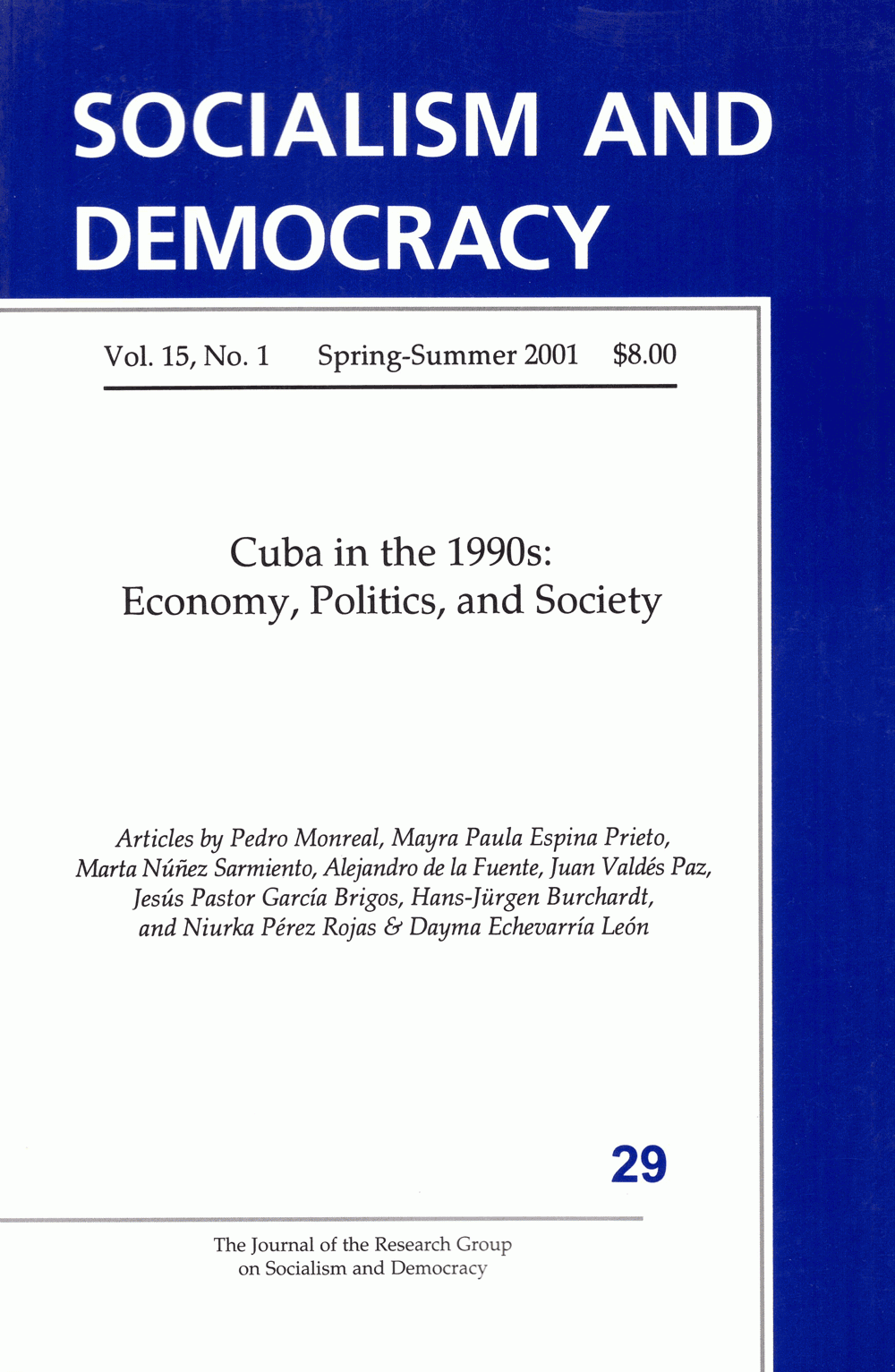The Cuban system of representative government, known as the Organs of People's Power (Órganos del Poder Popular or OPP), operates at three levels: the National Assembly, the provincial assemblies, and the municipal assemblies. The latter two are denominated the Local Organs of People's Power (Órganos Locales del Poder Popular or OLPP). Citizen participation is found mainly at the municipal level of government. Here candidates are chosen directly by the people in their respective electoral districts, and the elections are competitive. Through their elected municipal representatives, people have a direct voice in and take part in governmental affairs. At the provincial and national levels, candidacy commissions select the candidates, the elections are not competitive, and there is only limited contact between representatives and constituents.
Except for the officers, National Assembly deputies and provincial and municipal assembly delegates serve without pay and continue to work at their regular jobs. Only the National Assembly has legislative powers. The structure and electoral process of the OPP were incorporated in the 1976 Constitution and modified in the 1992 Constitution and Electoral Law.
National Assembly deputies and provincial assembly delegates serve for five-year terms and are nominated and elected together, during the same process. Candidates are selected by candidacy commissions, led by representatives from the Federation of Cuban Workers (Central de Trabajadores de Cuba or CTC), and composed of representatives from the other mass organizations. The Cuban Communist Party (Partido Comunista de Cuba or PCC) has no formal role in the nomination procedure. The lists of nominees are presented to the municipal assemblies for ratification. Voters in each municipality vote for a group of deputies and provincial delegates. There is no residency requirement for the candidates. The elections are not competitive: the number of candidates is equal to the number of seats to be filled. Voters can vote for individual candidates but are urged to vote for the entire slate. The latter option is advocated by local candidates at campaign rallies held within each municipality. Biographies and photographs of the candidates are posted in the neighborhoods. To be elected, a candidate must receive a majority of the votes cast in the municipality. Municipal delegates may also be elected as National Assembly deputies or provincial assembly delegates and may constitute up to fifty percent of the deputies and delegates in these bodies.
Municipal delegates' term of office is two and a half years, and they are elected separately from the deputies and provincial delegates. They represent electoral districts within municipalities, and must reside in these districts. Candidates are nominated by citizens at neighborhood meetings in the district. The PCC has no say in who will be chosen as candidates. By law the elections are competitive: there must be from two to eight candidates running in each electoral district. There is no campaigning for office. Biographies and photographs of the candidates are posted in the neighborhoods. A candidate must receive a majority of the votes to win. If no candidate receives a majority, a runoff ensues between the two candidates with the most votes.
The municipal assemblies direct and monitor all economic, social, educational, and public health activities in the municipality, mainly through assembly commissions. The delegates elect assembly presidents and vice presidents. Administrative affairs are handled by the administrative councils appointed by the assembly presidents. The delegates meet with constituents on a regular basis: once a week they hold office hours and twice a year they hold accountability sessions. At these meetings the delegates receive complaints and suggestions from those they represent. They must attempt to resolve the former and respond to the latter on a systematic basis.
The people's councils represent an attempt to bring municipal government to the neighborhood level in the cities, and in the rural areas to make the municipal government more accessible to isolated locations. They are formed by the delegates of approximately ten adjoining municipal assembly electoral districts. Members of these councils are the directors of the main economic and social activities in the territory as well as local representatives of the CTC and the mass organizations. Their jurisdiction includes dealing with citizen complaints, overseeing local economic activities and monitoring local administrators, rooting out corruption, and mobilizing the citizenry around local projects and issues.
Juan Valdés Paz, now retired but previously of the Center for the Study of the Americas (Centro de Estudios sobre América) and the Institute of History (Instituto de Historia), both in Havana, presents an overview of the Cuban political system and changes which have occurred during the past decade. He looks at the OPP, the PCC, the mass organizations, and professional groups. Valdés analyzes problems brought on by centralization and the effects of the special period, and resultant reforms including economic liberalization, political democratization, and structural changes.
Jesús Pastor García Brigos, of the Institute of Philosophy (Instituto de Filosofía) in Havana and a former municipal delegate, focuses on three recent modifications in the OPP: the People's Councils, the leadership structure of the municipal assemblies, and the nomination procedures for National Assembly deputies and provincial assembly delegates. His major emphasis is on the people's councils. He traces their growth and explains their importance and accomplishments. Nevertheless, he argues that the councils have yet to reach their full potential within the context of a socialist system, especially in terms of mobilizing citizen participation and involvement in local government. He also analyzes the consequences of two changes in the 1992 Constitution: the substitution of the administrative council for the executive committees within the municipal assembly's leadership structure, and decreasing the percentage of National Assembly deputies who must also be municipal delegates.

